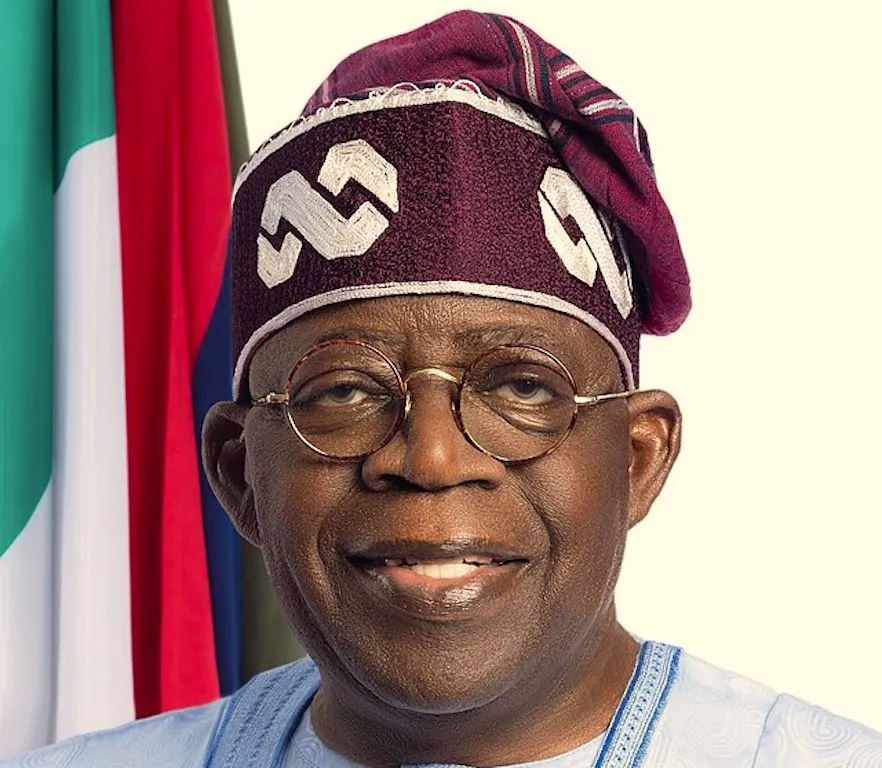President Bola Tinubu has announced sweeping changes in the leadership of Nigeria’s Armed Forces in what is seen as a renewed effort by the Federal Government to strengthen the country’s security architecture and improve the coordination of the military in tackling emerging threats across different regions.
In a statement issued from the State House on Friday, the President approved the appointment of General Olufemi Oluyede as the new Chief of Defense Staff to replace General Christopher Musa. The President also appointed Major-General W. Shaibu as Chief of Army Staff, Air Vice Marshal S. K. Aneke as Chief of Air Staff, and Rear Admiral I. Abbas as Chief of Naval Staff. Major-General E. A. P. Undiendeye will retain his position as Chief of Defense Intelligence.
The President, who serves as Commander-in-Chief of the Armed Forces, expressed his profound appreciation to the outgoing service chiefs for their patriotic service and leadership, noting that their efforts contributed significantly to the preservation of Nigeria’s territorial integrity. He urged the newly appointed officers to justify the confidence reposed in them by deepening the professionalism, vigilance, and comradeship that define the Nigerian military.
President Tinubu’s decision marks one of the most significant changes in Nigeria’s defense leadership since he assumed office in May 2023. The move comes at a time when the country continues to grapple with security challenges such as terrorism, banditry, kidnapping, oil theft, and communal violence. The President has repeatedly said that restoring peace and stability remains a top priority of his administration.
In recent months, the Federal Government has introduced a series of measures aimed at reforming and modernizing the nation’s security structure. These include increased funding for the defense sector, the introduction of new technology-driven surveillance systems, and the expansion of recruitment and training programs across the military and paramilitary services. The Ministry of Defense has also embarked on a comprehensive review of operational procedures to ensure more synergy among the Army, Navy, Air Force, and intelligence agencies.
According to senior government officials, the new appointments reflect the President’s desire to inject fresh energy and perspective into the military’s leadership. General Oluyede, who now heads the Defense Staff, is expected to coordinate joint operations more efficiently and promote a culture of accountability and collaboration across all branches of the armed forces. The President’s advisers believe this approach will help in addressing long-standing coordination gaps that have often hindered counter-terrorism and counter-insurgency efforts.
The Tinubu administration has been particularly focused on improving intelligence gathering and deployment in conflict zones. The decision to retain Major-General Undiendeye as Chief of Defense Intelligence underscores the government’s emphasis on continuity in the intelligence sector, which plays a critical role in detecting and neutralizing threats before they escalate. The government has also intensified cooperation with neighbouring countries through joint border patrols and intelligence-sharing initiatives to curb the movement of insurgents and illegal arms.
Beyond military reforms, the Federal Government has continued to invest in the socio-economic dimensions of national security. Programs under the Ministry of Humanitarian Affairs and the National Emergency Management Agency are being expanded to provide rehabilitation and livelihood support to communities affected by conflict. The government believes that sustainable peace requires not only military strength but also socio-economic stability, job creation, and trust between citizens and the state.
In the oil-rich Niger Delta, where pipeline vandalism and oil theft have threatened national revenue, the government has launched new surveillance contracts and increased naval patrols to secure vital energy infrastructure. Rear Admiral I. Abbas, the new Chief of Naval Staff, is expected to lead the drive to secure Nigeria’s maritime domain and combat piracy in the Gulf of Guinea. Similarly, Air Vice Marshal Aneke’s appointment as Chief of Air Staff is seen as part of efforts to strengthen aerial surveillance and rapid-response capabilities, especially in remote areas where ground operations face logistical constraints.
President Tinubu has also directed the Defense Headquarters to work closely with the National Security Adviser’s office to ensure that operational strategies are better aligned with broader national security objectives. This includes the integration of modern technology such as drones, satellite imagery, and artificial intelligence to improve surveillance, reconnaissance, and data analysis.
Security experts say the President’s actions indicate a pragmatic shift toward performance-driven leadership in the armed forces, noting that the success of the new service chiefs will depend not only on policy direction from the top but also on the morale and discipline of troops on the ground. Ensuring prompt payment of allowances, improving living conditions in military barracks, and providing adequate welfare packages for families of fallen soldiers are among the reforms currently being prioritized.
In his directive to the new service chiefs, President Tinubu emphasized that the country expects tangible results in the coming months. He charged them to maintain absolute loyalty to the Constitution and to uphold the highest standards of professionalism in defending the nation. “The Nigerian people have placed their trust in the Armed Forces. You must not let them down,” he reportedly told the appointees.
The appointments, which take immediate effect, mark a new phase in the government’s broader security strategy. As the country looks forward to improved coordination among the security agencies, the leadership change is expected to set a new tone for discipline, efficiency, and commitment in the fight against insecurity.
Samuel Aina

